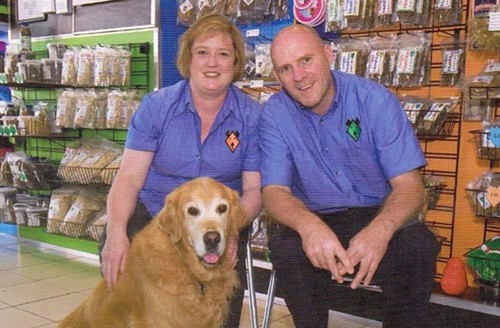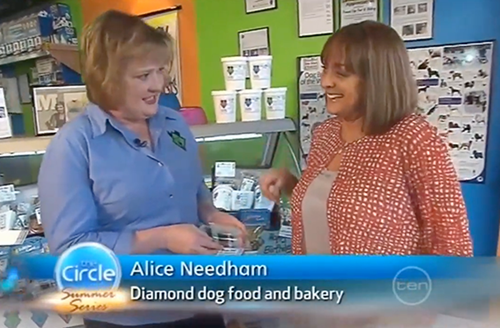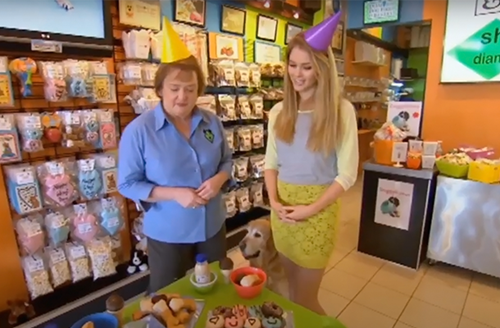
Foreword
The Universal Business School Sydney (UBSS) commissioned Cyril Jankoff and Daniel Bendel to write a second book for them, a book on entrepreneurs. Its purpose is to give new local and international undergraduate and MBA students a feel of what every day Australian business success looks like. To give a realistic view of successful entrepreneurship the authors chose 15 successful entrepreneurs and interviewed them. This is the sixth interview. Each interviewee was asked the same questions and at a later stage the authors will review all interviews and summarise the commonalities. The focus of the cases is on Sections III to VI.
Alice Needham and Philip Chaplin
Entrepreneurial spirit is in their blood. They love the thrill of building a business.
Both Alice and Philip have come from serial business families. They have grown up with this and love the feeling of independence to do their own thing, recognising it still takes a lot of work.
I. Key dates
- In 1989 Phillip’s family sold its hotel. He worked in the hotel and then worked for a catering company.
- In 1989 at the 1989 Melbourne Cup, he met Alice, who was also working there. Alice had worked for Snap printing (her family’s business) prior to this for several years. Her parents had several businesses over the years.
- In 1991 Alice and Philip started a new business together in outdoor gardening maintenance called “Don River”.
- In 1992 they wound down “Don River” and started a new business “Rain and Shine” irrigation and gardening lighting.
- In 2000 they sold Rain and Shine business, and started a new business called “Wrap Attack” which was a take-away food business in Geelong (in Victoria) with a difference, the difference being that- specialising in creative food wraps.
- In 2005 they moved the “Wrap Attack” business to Bay Street Brighton (in Melbourne) but found there was too much competition for food. While they had an innovative idea, it was difficult to market this amongst the variety of “take-aways.”
Editors note – perhaps they needed a Ray Croc (McDonalds).
- In 2010 they converted the Wrap Attack business to a pet shop specialising in bakery items made on the premises. The business was called “Diamond Dog Food and Bakery”.
- In 2011 Alice and Phillip started marketing Diamond Dog products on television, and through the newspaper & radio. An unexpected result of this marketing was the request to write a dog cookbook, which ended up being called “Doggylicious”.
- This was the television show that prompted the book; Doggylicious on Sunrise
- For further information see:
- In 2013 they commenced production on a wholesale basis to retailers. Success followed quickly with sales of specialty Halloween & Christmas dog treats to Petbarn (Australia’s biggest pet food retailer).
- In 2015 they relocated to a small factory / warehouse in Seaford (a Melbourne southern bayside suburb) to focus full time and completely on wholesale.
- In 2016 they changed the name of their business to Wagalot.
- In 2017 they relocated to larger premises in Carrum Downs, a suburb near to their Seafood factory.
- In 2020 Alice and Philip wanted to set up a charity to promote the welfare of animals. They established the Wagalot Animal Welfare Fund which is incorporated under the Lord Mayor’s Charitable Trust structure and the donations are tax deductible. On many of their products they give a set amount of the sale proceeds to the charity. They, the staff, friends and family all donate as well.
Donate here at Wagalot Animal Welfare Fund
Today the Wagalot business, has become a very well-established pet treat manufacturing company that specialises in unique fun food for dogs. They are now one of the biggest suppliers in their niche business segment to pet food retailers around Australia and New Zealand and are occasional suppliers to major supermarkets. Their business is a good example of a small business that has employed many people over the years (including Alice and Philip, and the loyal taster, see photograph, below), and it has been a model contributor to the Australian economy. They pride themselves on their business ethics and bringing their staff along as a team effort.

Alice and Philip and the senior taste tester (a loyal employee).
II. Getting to know the person
1. What is success?
- Philip: The first couple of years in a small business success can be seen as survival, which can be defined as “the ability to spend say $500 on the business without worrying”, and this is a great feeling. He also sees success as being able to earn a living and see growth in the business.
- Alice: She loves the little wins. For example, a new customer, a new successful product, something to keep them going is her feeling of success. These things keep the business interesting.
Author’s note: the occasional good golf shot keeps him going too!
2. What is your favourite TV show, movie or book and why?
- TV series: “Line of Duty” and similar Police crime shows – they both like this and watch together.
- Movies – Different tastes here:
- Alice: more arthouse movies also Coen brothers’ movies (quirky and entertaining), movies by Director Wes Anderson.
- Philip: more old movies, including The Godfather, Casablanca.
- Both: Grand Budapest Hotel.
3. What are your hobbies and/or Interests?
They said that the business is their hobby, perhaps because they are always together with little other distractions. They see Wagalot as their last business before retirement so are focusing hard on it. They see it as a way of life. Their hours are essentially extended office hours Monday to Friday, and they try not to wok too much on weekends. They might talk business for an hour at night. They are up at 5 to 6 am, checking emails then breakfast. Their work hours are:
- Alice 7 am to 4 pm.
- Philip 8 am to 5.30 pm.
They travel separately to work because they have different tastes in music. Alice likes triple J, Philip like Classic FM.
Authors. note – maybe a reason to get some alone time 😊.
III. Tips
4. How did you get through your worst times?
They have learnt to “rock and roll with the punches” over the years. Their philosophy is to make their decisions and then make the most of the outcomes. They also have learnt to cut losses early if it appears things are not working out. They are very aware of the importance of listening to their customers more and talking less.
Authors’ note: Amen to that 😊.
5. What keeps you awake at night?
It has taken time, but they now do not worry about the business at night. However, they may be on edge if there is a big meeting scheduled the next day, for example with a major category buyer, but they do not feel under any real pressure.
6. What are your typical daily routines?
They are up at 5 to 6 am, checking emails then breakfast. Philip takes Cliffy, the golden retriever, for a walk every morning for 40 minutes, and Alice often takes the dog in the afternoon as well. Alice likes to get to work 40 minutes before staff so she can set up everyone’s work routines for the day before she gets interrupted. As stated in Question 3, they have a standard daily routine.
Authors’ note: Lucky Cliffy!
7. What advice would you give yourself starting out?
Do not go into business unless you are serious about it and can provide the resources required. They recommend you explore the industry thoroughly first before going into it to find out all the nuances involved. Try gaining real hands-on experience first. They said that you need to ensure you have the necessary skills, and particularly good communication and people skills. Imitating others is not necessarily the way to go, and a little imagination can be very beneficial to find your competitive advantage.
8. What cross cultural issues did you experience? How were they overcome? How is Australia different?
They have not experienced any cross-cultural problems on a non-business level. They have had staff with a range of backgrounds, for example the Philippines, Cambodia etc. with no issues. Dealing with suppliers from India and China and selling into Hong Kong and Singapore requires an understanding regarding the differences in the interpretation of the language and cultural aspects. This requires some experience. They have, however, experienced a significant cultural difference between small business and large corporate business, and this is further discussed in Question 11.
IV. Business case examples
9. Provide a case you managed well and why?
The case is both an example of a case that went well and one that did not go so well. Alice and Philip had worked to get into a major supermarket. After many meetings and product presentations they finally received an order for a special Christmas product. They were aware of the many horror stories of suppliers being taken advantage of by the big majors, particularly on the “sale or return” of new product placement. They were careful to cover key eventualities, that is supply terms were carefully reviewed, product production and quality were carefully monitored. They had a good contact with the supermarket, and they communicated clearly and constantly throughout the process. The product was then produced over many months and delivered on time and payment was made. This was a successful product sale for two reasons: (1) attention to detail on all the processes; and (2) communication throughout with all key people along the way.
10. Provide a case that did not go well and why?
The supply agreement with the supermarket just discussed stated that any product not sold by strict cut off dates were to be marked down and the markdown amount was to be shared between Wagalot and the supermarket depending on when marked down according to a set formula. This is a standard supply clause and Alice and Phillip were confident that this should not be a major issue as they were very confident of their product and processes. They had sold similar product before through other avenues and knew at the right price point it would sell well.
What they had not counted on was the complex and bureaucratic internal communications within the supermarket. As this product was not a normal standard product the warehousing and merchandising departments did not get the right internal communications from the buying department on when it needed to be delivered and how it was to be merchandised. As a result, the product was held up in the warehouse and did not go to the actual supermarket until weeks after they were supposed to, leaving an impossibly short time for the product to sell in store. In addition, the “visual merchandising” was left to each store to manage and display the product. In many cases the product was not displayed at all or placed in bad or inappropriate positions. They continually appealed to their supermarket contact who was unable to assist as it was not in their specific “remit” (or authority level). Many of the supermarket computer inventory screens showed the product was in store but when Alice and Philip physically checked the actual store the product was not on display. As a result, there was excess stock at the strict Christmas cut-off date and the supermarket immediately applied the high mark downs resulting in much of the profit needing to be paid back.
Authors’ note: In retrospect they should have had ensured this aspect was covered better either by a better markdown clause or a specific clause that any delays of distribution within the supermarket would be allowed for in the calculation. However, it is hard to pick these risks in advance, but they are aware of the risk now, and can seek to mitigate the risk in future contract negotiations.
11. What conclusions can be drawn by comparing these cases?
Alice and Phillip firmly believe that from their experience there is a different ethos and way of thinking in small business versus large corporates. They believe that this requires an understanding of the way large corporate business think. They consider that large corporates tend to use their own jargon, and this can be a barrier to small businesses wishing to engage with them. In a small business often, multiple people understand most of the operations whereas in large corporates work duties are specialised which is understandable give the scale of a large business. However, this means that a small businessperson may need to go to several different people to get an issue resolved. Unfortunately, when seeking a resolution, one often ends up dealing with staff who cannot give an answer even assuming they have the time to assist. In this case the large corporate buyer has the power to order a new product line but then has no further authority or responsibility to help with the success of the product. The corporate buyer would simply discontinue the line if sales were not sufficient. While Alice and Philip do not regret this unfortunate contract with the supermarket, they advise that it is not always a good idea to say “yes” to an offer to sell to a large buyer, such as a supermarket, and sometimes it is best to say “no” if the risks or downsides are too great.
12. Were these business cases affected by cross cultural issues?
See Question 8 – No cultural issues apart from the culture difference between small business to large corporates.
V. COVID-19
13. How has the virus affected your business?
The Covid pandemic, particularly the 2020 and 2021 lockdowns in Melbourne, has had many varied effects on every aspect of their business. While they were classified as an “essential provider” (welfare of animals) meaning that they could continue to work during the long Victorian COVID lockdowns, their business was disrupted due to the inability to obtain supplies and the inability to fully work with staff caused by the staff distancing restrictions. This presented many challenges for day-to-day operations when trying to operate their business.
From a business perspective there was an initial sales downturn as stores were running down stocks. However, soon after the initial downturn sales increased as businesses sought to increase their inventory. Therefore overall, there was only a small downturn effect on their business. As Wagalot is focused on the more discretionary end of dog treats, it is unfortunate that during periods of uncertainty consumers purchased less of these products. On the other hand, however, there was a big increase in animal ownership and consumers were not spending on other discretionary purchasing, for example travel.
14. What lasting impact do you think it will have on your business?
As their Industry was not badly affected, they consider that there will be no lasting impact on the business.
15. What have you learned from it that you will now implement in your business?
They have learnt about risk management for a pandemic, so they understand how to follow the rules on COVID-19 distancing, signage, cleaning and associated protection measures. They have certainly learnt to be more flexible on government regulations and how quickly they can change.
VI. Family business
16. Is this a family business?
Yes, it is. This is because the owners, Alice and Phillip are not only life partners, but also owners and work together.
17. From your experience what do you think are the advantages and disadvantages of family working in the business?
Alice and Philip have had limited experience in working with relatives. Their nephew worked well with them, but they needed to set ground rules and separate work from family. It could have been a problem had they not done this. They said that they are wary of bringing in other family members to the business and would prefer not to take this risk.
Authors:
• Cyril Jankoff
• Daniel Bendel
Further information:
Wagalot

Presenting Wagalot novel dog treats on television. Alice is on the left, jokingly offering a dog biscuit to the television presenter.

Presenting Wagalot novel dog treats on television. Here we see taste testing on television. Alice (on left) is with the TV presenter (on right) and tester (between them).
(Authors’ note 1: It is the dog doing the test tasting).
(Authors’ note 2: Danny invited Cyril over to his house and offered him a hot drink and a biscuit. Cyril did not know it was a dog biscuit and when asked Cyril remarked that the biscuit tasted good, except that it was a bit hard on the teeth! What does Cyril eat at home?)




